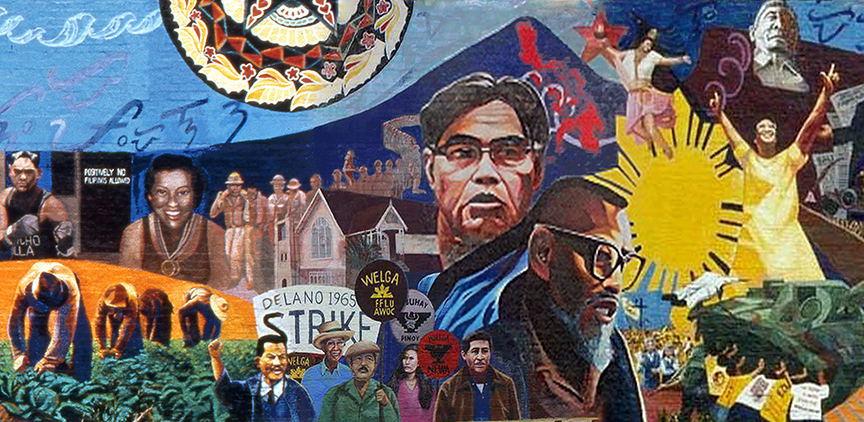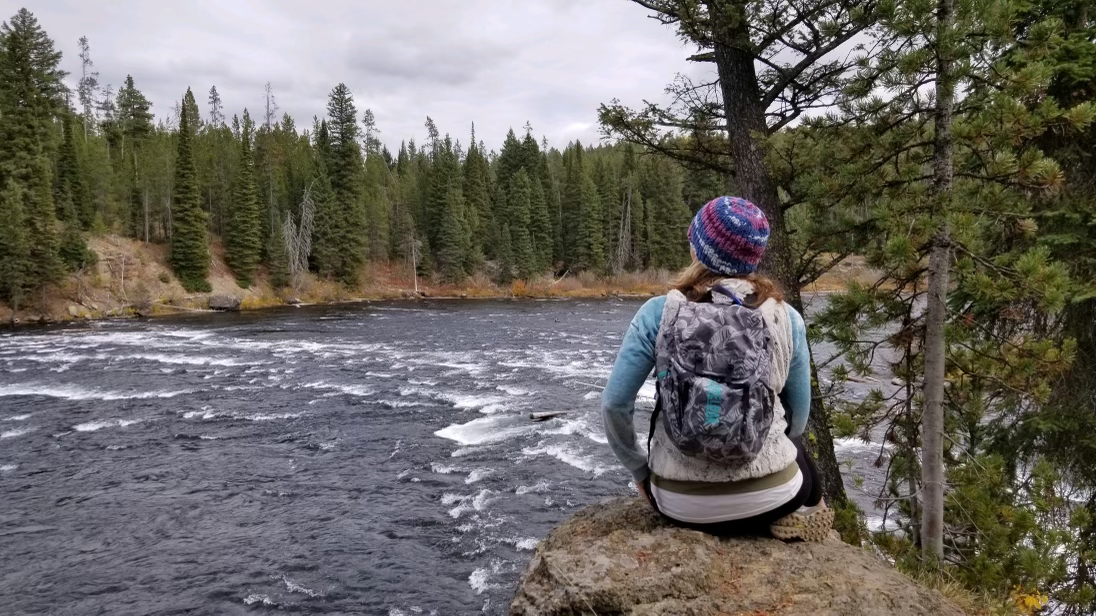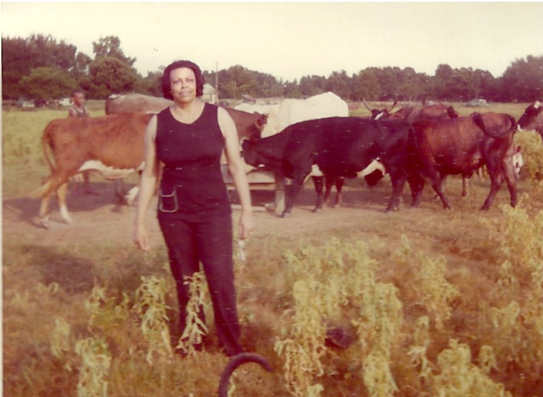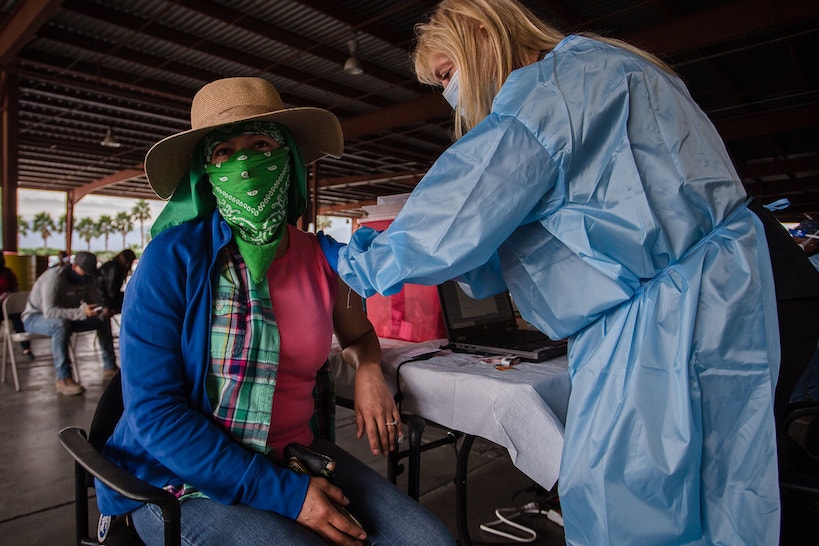Outreach Connection Blog
Information and Resources for Outreach Programs
About
HOP’s Blog is dedicated to bringing you the most up-to-date information about outreach resources and emerging trends. Here you can find regular addresses from the Executive Director, as well as rotating staff blogs. It also elevates the experience of outreach workers and the importance of outreach through the sharing of outreach stories.
Outreach Connection Newsletter
Sign-up for the Outreach Connection monthly newsletter and blog digest
SUBSCRIBE HEREFacebook Feed
Diabetes and Stress: Reimagining Health Education Intervention Strategies
Los que me importan (The Ones I Love)
Celebrating the History of Filipino Americans
There is a good chance that you have heard the story of Latino farm labor leader and civil rights activist Cesar Chavez and his role in the Delano Grape Strike in California's Central Valley. In 2014, President Barack Obama declared March 31st a national holiday to commemorate Chavez's legacy. And if you live in California, you have probably seen countless murals, street names, parks, and schools all over the state honoring Cesar Chavez. But have you also heard of Larry Itliong?  (more…)
(more…)
“Self-Care is Burning Me Out.”
 It’s hard to believe 2021 is almost over as we transition from summer to fall and the Covid-19 pandemic continues to leave us feeling isolated, insecure, and exhausted. Many of my friends, co-workers, and family have expressed frustration at the lack of boundaries between a work- personal life balance, which was extremely frayed before the pandemic. (The last two HOP staff blogs discussed burn-out, self-care and healing. We have a theme going!) Now that we have been working at home for the last 18 months, this boundary seems to have disappeared altogether. Over 50% of the US workforce reports feeling burned out – 2021 is being hailed as the Great Resignation. Burnout didn’t come about solely because of the pandemic. The American workforce, especially health care workers, were suffering from this long before March 2020. (more…)
It’s hard to believe 2021 is almost over as we transition from summer to fall and the Covid-19 pandemic continues to leave us feeling isolated, insecure, and exhausted. Many of my friends, co-workers, and family have expressed frustration at the lack of boundaries between a work- personal life balance, which was extremely frayed before the pandemic. (The last two HOP staff blogs discussed burn-out, self-care and healing. We have a theme going!) Now that we have been working at home for the last 18 months, this boundary seems to have disappeared altogether. Over 50% of the US workforce reports feeling burned out – 2021 is being hailed as the Great Resignation. Burnout didn’t come about solely because of the pandemic. The American workforce, especially health care workers, were suffering from this long before March 2020. (more…) Diabetes Across the Lifespan: Diabetes Prevention Strategies for the Whole Family
Xicana: Reflections on Identity as a Form of Resistance to White Supremacy
“They tried to bury us, they didn’t know we were seeds” – Dinos Christianopoulos
It’s Hispanic Heritage month and it’s a bittersweet time of the year for me. On one hand, I don’t identify as Hispanic, on the other, I too am a descendent of colonized people by the Spanish Conquest of what is now known as the Americas. I can be both patriotic of my motherland and critical of the so-called nation-borders that divide us and strip us of our roots. I identify as Xicana with an ‘X’ as most of my friends and peers feel the need to emphasize. Xicana, is different than Chicana with a ‘Ch’ in that the ‘X’ is rooted in the parts of our identity that are intentionally made invisible, like our indigeneity and decolonial consciousness. I am part of a growing group of people that are challenging the erasure of our people’s history by reclaiming parts of our identity that we refuse to let die. By reclaiming and acknowledging these identities, we are saying that we are still here and still alive. In times of the COVID-19 pandemic, it has become even more critical to underscore that we won’t be erased. My people are still here battling colonialism and white supremacy since 1492, the true public health threat of our lives. (more…)COVID-19 Vaccination Updates for Latinos – August 31, 2021
Workplace Burnout: The Impact of Forgetting Oneself
“Whatever you’re feeling, be good to yourself. If you feel lost, be patient with yourself while you find your way. If you feel scared, be gentle with yourself while you find the strength to face your fear. If you feel hurt, be kind to yourself while you grieve and slowly heal. You can’t bully yourself into clarity, courage, or peace, and you can’t rush self-discovery or transformation. Some things simply take time, so take the pressure off and give yourself space to grow.”
- Lori Deschene
The year 2020 was a transformative year for the majority of the world. As society shutdown and quarantining was implemented, many of us needed to adjust to a new reality for the unforeseeable future. Economic hardships, a mysterious virus, stress, and loneliness wreaked havoc on many individuals. Essential workers, the heroes that kept our society running, were faced with potentially stressful work environments due to the highly contagious Covid-19 virus along with a demanding workload. While the occurrence of workplace burnout throughout the Covid-19 pandemic is well documented, I had a very different experience. For the first time in a long time, despite everything around me, I felt peace. The pandemic granted me the opportunity to connect with someone that I neglected for years, myself. (more…)Grief and Loss: How Trauma is Held in Our Bodies and the Journey to Healing
“When we do not allow ourselves to release our emotions we allow ourselves to harbor negative emotions…. When we cry we are actually inviting life back into our bodies and to our spirits.”
- Sobonfu Somé
“See you later alligator...afterwhile crocodile” This was the goodbye my grandmother and I would always say to one another anytime we said goodbye. My grandmother always had a unique way of doing things whether it was in saying goodbye, how we rang her doorbell, or even what each of her grandchildren called her. For me it was Grandmama, she liked that name because she was my only living grandparent and she liked saying how she was my mama’s mama...hence Grandmama. As I write this, I can still hear her voice and remember the scent of her perfume that filled every room of her house. (more…)
(more…) Involving Children and Parents in Diabetes Health Education for Youth
Reflections on Asian American Consciousness
The problem with silence is that it can’t speak up and say why it’s silent. And so silence collects, becomes amplified, takes on a life outside our intentions, in that silence can get misread as indifference, or avoidance, or even shame, and eventually this silences passes over into forgetting.
– Cathy Park Hong From Minor Feelings: An Asian American Reckoning
When I first started to plan for this month’s blog post, I wasn’t quite sure about what I wanted to write. Coincidentally, the month of May is Asian Pacific American Heritage Month (APAHM) and Asian Pacific Islander Heritage Month (APIHM), where we honor, highlight, and celebrate the diverse cultures, narratives, and histories of the Asian American Pacific Islander (AAPI) community in the U.S. As a Korean American, I feel overwhelming joy and love for the history, language, and culture of my parents, family, and ancestors. Moreover, I feel lucky to be part of the larger AAPI community. Yet as I write this, it feels rather bittersweet at a time where we’ve seen in the past year such a dramatic rise in AAPI hate and violence in the U.S. But quite honestly, I feel disheartened to say that it’s not surprising given the long history of racism against Black, Indigenous, People of Color (BIPOC) in this country fueled by white supremacy. (more…)Gun Violence: The Public Health Crisis of Government Inaction
 Fourteen years ago, on a windy and sun-soaked spring afternoon, I ran out of my dorm room and into the arms of a few of my friends who I had only been able to chat with on and off over AOL Instant Messenger in the hours before. All entrances to our campus dormitories had been automatically locked and no one could move between buildings or even floors. Administrators asked that dormitory phone lines be kept open, but the cell towers were being inundated with calls from family and friends of students to verify their safety and whereabouts. I didn’t know what to feel, but it was an uncomfortable combination of fear and anxiety that made it hard to sit still, but also made me a little numb. The only information outlets were the local news channel and a short series of emails advising everyone to stay where they were, that a gunman was "loose" on campus, and that two people were fatally shot in a dorm not far from mine. (more…)
Fourteen years ago, on a windy and sun-soaked spring afternoon, I ran out of my dorm room and into the arms of a few of my friends who I had only been able to chat with on and off over AOL Instant Messenger in the hours before. All entrances to our campus dormitories had been automatically locked and no one could move between buildings or even floors. Administrators asked that dormitory phone lines be kept open, but the cell towers were being inundated with calls from family and friends of students to verify their safety and whereabouts. I didn’t know what to feel, but it was an uncomfortable combination of fear and anxiety that made it hard to sit still, but also made me a little numb. The only information outlets were the local news channel and a short series of emails advising everyone to stay where they were, that a gunman was "loose" on campus, and that two people were fatally shot in a dorm not far from mine. (more…) One Year Later
Living a Healthy Lifestyle: The Role of CHWs in Preventing Diabetes through Family Connection
Make Agricultural Workers a Priority for the COVID-19 Vaccine Today
 The rollout of the COVID-19 vaccine has been historic. It was created in record time with international public and private cooperation. With the recent approval of the Johnson & Johnson single-dose vaccine, there are currently three vaccines authorized to be distributed and administered in the United States. Vaccine data, information, and guidelines are being updated daily, and on March 2nd President Biden vowed that there will be enough supply for all adult Americans to receive the vaccine by the end of May. However, even if we meet this ambitious goal, there will still be thousands of people who die and many more infected with this disease before widespread vaccination is achieved. This is why thoughtful vaccine distribution now is vital to saving as many lives as possible, especially with an end in sight, and why agricultural workers need to be at the top of the list as an immediate priority. (more…)
The rollout of the COVID-19 vaccine has been historic. It was created in record time with international public and private cooperation. With the recent approval of the Johnson & Johnson single-dose vaccine, there are currently three vaccines authorized to be distributed and administered in the United States. Vaccine data, information, and guidelines are being updated daily, and on March 2nd President Biden vowed that there will be enough supply for all adult Americans to receive the vaccine by the end of May. However, even if we meet this ambitious goal, there will still be thousands of people who die and many more infected with this disease before widespread vaccination is achieved. This is why thoughtful vaccine distribution now is vital to saving as many lives as possible, especially with an end in sight, and why agricultural workers need to be at the top of the list as an immediate priority. (more…) 
